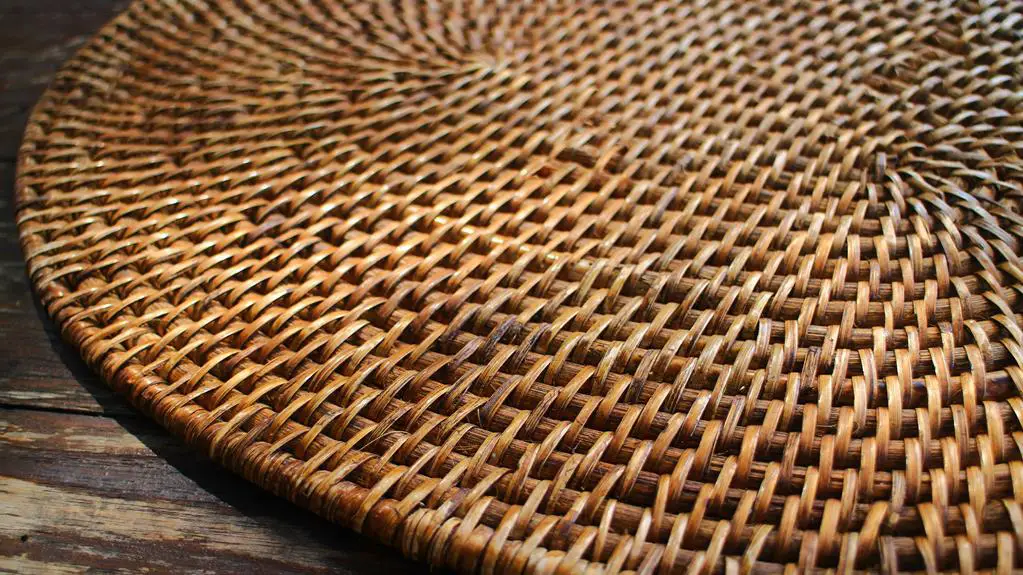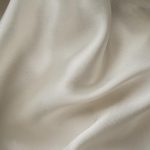You might think bamboo fabric is a safe choice due to its hypoallergenic claims, but is it really as gentle on your skin as advertised? While many appreciate its softness and breathability, some people still experience allergic reactions. It's not just the fabric itself that can cause issues; dyes and chemical finishes might also play a role. Understanding the nuances of bamboo fabric allergies could help you make better choices for your wardrobe. So, what should you know about these potential irritants?
Table of Contents
Key Takeaways
- Bamboo fabric is generally considered hypoallergenic, but individual reactions can vary based on personal sensitivities.
- Common allergens in bamboo textiles include dyes and chemical finishes used in processing.
- Symptoms of fabric allergies can include itching, redness, and rashes upon contact with the fabric.
- Washing new bamboo clothing can help remove potential irritants from processing contaminants.
What Is Bamboo Fabric?
Bamboo fabric is a soft, breathable textile made from the cellulose extracted from bamboo plants. This eco-friendly material has gained popularity due to its unique properties. You'll find that bamboo fabric isn't only incredibly soft to the touch but also moisture-wicking, which helps keep you dry and comfortable. Its breathability makes it an excellent choice for warm weather, as it allows air to circulate, preventing overheating.
Additionally, bamboo fabric is naturally hypoallergenic, making it suitable for sensitive skin. If you're prone to allergies, you might appreciate that it resists the growth of bacteria and fungi, reducing the likelihood of skin irritation. The fabric's antibacterial properties come from a natural compound found in bamboo, which helps maintain freshness and cleanliness.
Moreover, bamboo fabric is biodegradable, contributing to sustainability efforts. When you choose products made from bamboo, you're supporting an environmentally friendly option that minimizes waste.
How Bamboo Fabric Is Made
To create bamboo fabric, manufacturers first harvest the bamboo stalks, then extract the cellulose through a process that involves soaking and grinding the plant. This step breaks down the bamboo into a mash, which is crucial for the next phases.
Once the cellulose is extracted, it's often dissolved in a solvent to create a viscous solution. Next, this solution is pushed through spinnerets, which are tiny holes that shape the liquid into long fibers. After this, the fibers are solidified, usually through a process involving either air or water. The resulting fibers are then washed and purified to remove any remaining chemicals.
Once the fibers are clean, they're spun into yarn, ready for weaving or knitting. At this point, you can see how versatile bamboo fabric can be. You might find it in various products, from clothing to home textiles.
Hypoallergenic Properties of Bamboo
When you choose bamboo fabric, you're opting for a material known for its hypoallergenic properties.
Its natural antimicrobial qualities help keep allergens at bay, while its breathability and moisture regulation enhance comfort.
This means you can enjoy a softer, healthier sleep without worrying about irritants.
Natural Antimicrobial Properties
Many people find that bamboo fabric's natural antimicrobial properties help reduce the risk of skin irritations and allergies. This unique feature comes from the bamboo plant itself, which contains a substance called “bamboo kun.” This compound effectively inhibits the growth of harmful bacteria and fungi, making bamboo fabric a safer choice for those prone to allergies or sensitive skin.
When you wear clothing made from bamboo, you're less likely to experience rashes or other skin issues that often arise from materials that harbor bacteria. Unlike some synthetic fabrics, bamboo doesn't require harsh chemicals to maintain its cleanliness, which further minimizes the risk of irritation.
If you're someone who's struggled with allergies from traditional fabrics, you might find relief in bamboo options. They offer a gentle, soft touch against your skin, which is especially beneficial if you're prone to itching or discomfort.
Breathability and Moisture Regulation
Breathable and moisture-wicking, bamboo fabric helps keep your skin dry and comfortable, reducing the likelihood of irritation and allergic reactions. This unique property makes bamboo an excellent choice for those with sensitive skin or allergies. When you wear bamboo clothing, you'll likely notice how it allows air to circulate, preventing overheating and excessive sweating.
Here are some key benefits of bamboo's breathability and moisture regulation:
- Temperature Control: Bamboo fabric adjusts to your body temperature, keeping you cool in summer and warm in winter.
- Moisture Management: It wicks away moisture quickly, ensuring sweat doesn't linger against your skin, which minimizes the risk of rashes and discomfort.
Common Allergens in Textiles
When choosing textiles, you need to be aware of common allergens that could affect your skin.
Natural fibers can cause sensitivities, while dyes and chemicals used in processing may trigger reactions.
Understanding these factors helps you make informed decisions about the fabrics you wear.
Natural Fiber Sensitivities
Natural fibers can trigger sensitivities in some individuals due to common allergens found in textiles, like dyes, finishes, and even contaminants from processing.
While bamboo is often praised for its softness and eco-friendliness, it's essential to recognize that the way it's manufactured can introduce potential irritants. You might experience discomfort from certain elements present in bamboo fabrics or any natural fibers.
Here are a few common allergens to be aware of:
- Dyes: Synthetic dyes can cause allergic reactions, especially in sensitive individuals.
- Finishes: Chemical finishes applied to fabrics for durability or wrinkle-resistance might lead to skin irritation.
If you notice itching, rashes, or other reactions when wearing natural fibers, it's a good idea to consider these factors.
Always opt for certified organic materials when possible, as they tend to have fewer allergens.
Dye and Chemical Reactions
Understanding how dyes and chemical finishes affect your skin is vital, especially since these substances can be common allergens in textiles, including bamboo fabric.
When shopping for bamboo clothing, it's essential to consider how the dyes used in the fabric may react with your skin. Many dyes, especially synthetic ones, contain chemicals that can trigger allergic reactions in sensitive individuals. You might experience irritation, rashes, or even respiratory issues if you're allergic to certain dyes.
It's not just the dyes; chemical finishes applied to enhance the fabric's properties can also be culprits. For example, flame retardants or water repellents may contain harmful substances that can provoke allergic responses.
To minimize the risk of reactions, consider opting for bamboo fabrics dyed with natural, eco-friendly dyes. Always check labels for information on dyeing processes and chemical treatments. If you know you have allergies, it might be helpful to do a patch test before wearing new bamboo textiles.
Fabric Processing Contaminants
Fabric processing can introduce various contaminants that may trigger allergies in sensitive individuals. When you wear bamboo fabric, it's essential to consider what might've been used during its production. These contaminants can include residues from chemicals, dyes, and finishes, which can linger in the fabric even after it's manufactured.
Here are some common allergens you might encounter:
- Chemical Finishes: These are often applied to enhance durability or stain resistance but can irritate sensitive skin.
- Dye Residues: Even natural dyes can cause allergic reactions in some people, depending on their specific sensitivities.
If you have allergies or sensitive skin, it's wise to choose bamboo fabrics that are certified organic or labeled as hypoallergenic.
Always wash new clothing before wearing it to help remove any remaining contaminants.
Symptoms of Fabric Allergies
If you're allergic to certain fabrics, you might experience symptoms like itching, redness, or rashes upon contact. These reactions can occur almost immediately after your skin touches the fabric, or they may develop over time with repeated exposure. You might also notice swelling or hives in the affected areas, which can be uncomfortable and irritating.
In some cases, you could experience dryness or flaking of the skin, as your body's response to the allergen can disrupt its natural barrier. If you're particularly sensitive, you may find that even a small amount of fabric can trigger these symptoms.
Additionally, some people report feeling a burning sensation or warmth in the areas where the fabric touches their skin. This discomfort can lead you to avoid wearing certain clothing altogether, impacting your wardrobe choices.
If you notice these symptoms consistently after wearing specific fabrics, it's essential to pay attention and consider consulting a healthcare professional. They can help determine if you have a fabric allergy and provide guidance on how to manage your symptoms effectively.
Is Bamboo Fabric Really Hypoallergenic?
Bamboo fabric is often marketed as hypoallergenic, but it's important to consider how your skin reacts to it, especially if you have existing fabric allergies. While bamboo is a natural fiber and generally less irritating than synthetic materials, individual reactions can vary. Some people may still experience skin sensitivities or allergic reactions to bamboo fabric, depending on the processing methods used and any chemicals applied during production.
Here are a few key points to keep in mind:
- Processing Methods: The way bamboo is processed into fabric can introduce irritants. Some methods use harsh chemicals that may cause skin reactions.
- Dyes and Treatments: Fabrics dyed or treated with additional chemicals may not be hypoallergenic. Always check the labels for any potential allergens.
Ultimately, while bamboo fabric may be less likely to cause allergies than synthetic options, it isn't completely risk-free. Always pay attention to how your skin responds to new fabrics.
Tips for Choosing Safe Fabrics
When selecting safe fabrics, always prioritize those made from natural fibers and check for any potential chemical treatments that could irritate your skin.
Look for materials like cotton, linen, and wool, which are less likely to cause allergic reactions compared to synthetic options. If you're considering bamboo fabric, ensure it's processed without harsh chemicals, as some methods can leave residues that may provoke irritations.
Next, read labels carefully. Look for certifications like OEKO-TEX or GOTS, which indicate that the fabric meets strict safety standards.
These certifications often signify that the fabric has been tested for harmful substances, making it a safer choice for sensitive skin.
Also, consider the dyeing process. Natural dyes are typically gentler on the skin, while synthetic dyes can contain allergens.
If you're unsure, opt for undyed or naturally colored fabrics.
Frequently Asked Questions
Can Bamboo Fabric Cause Allergic Reactions in Children?
Bamboo fabric can cause allergic reactions in children, though it's relatively rare. If your child experiences redness, itching, or irritation after contact, it's best to discontinue use and consult a healthcare professional for advice.
Is Bamboo Fabric Safe for Sensitive Skin?
Bamboo fabric's generally safe for sensitive skin, as it's soft and breathable. However, you should always test a small area first to ensure you don't experience irritation or an allergic reaction. Trust your skin's response!
How Does Bamboo Fabric Compare to Cotton for Allergies?
Bamboo fabric tends to be less irritating than cotton for many people. It's naturally antibacterial and moisture-wicking, which can help reduce allergy flare-ups. However, individual reactions vary, so it's best to try both materials.
Are There Any Dyes in Bamboo Fabric That Could Cause Allergies?
Yes, some dyes used in bamboo fabric can cause allergies. If you're sensitive to certain chemicals or dyes, it's best to check the fabric's labeling or opt for organic, non-dyed options to minimize risks.
Can Bamboo Fabric Aggravate Existing Skin Conditions Like Eczema?
Bamboo fabric's softness might seem soothing, but it can irritate sensitive skin or exacerbate conditions like eczema. If you've got existing skin issues, monitor how your skin reacts to bamboo products closely.
- An In-Depth Look at Nonwoven Wallpaper: Is It Right for You? - July 12, 2025
- Spunbond Polypropylene: The Go-To Fabric for Reusable Bags - July 12, 2025
- What Is Meltblown Fabric and Why Is It Essential for N95 Masks? - July 12, 2025





